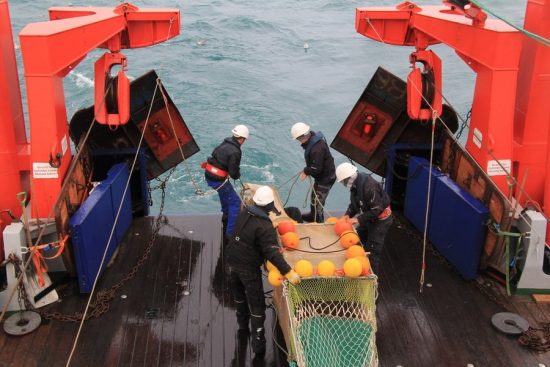An in-depth assessment of the possible impact of ocean acidification on the environment, society and economy, as well as the development of management options for decision-makers were the main topics discussed at the German research network BIOACID (Biological Impact of Ocean Acidification), now in its final funding period.
The German Research Network on Ocean Acidification BIOACID took place on October 6th and 7th at the Helmholtz Centre for Ocean Research Kiel. During the event, scientists sought to coordinate their activities for the final funding period. Besides integrating information from individual research areas, they also intend to present a joint synthesis report at the end of 2017.
Since 2009, BIOACID has been researching the impact of ocean acidification. As one of the largest national research programmes on the topic, the project has been a significant contributor in quantifying the efforts of “the other carbon dioxide problem” on marine life and in giving researchers an insight into the underlying mechanisms.
As their understanding of the impact of
ocean acidification grew, the scientists were able to broaden their focus from marine organisms to entire communities and ecosystems, addressing ocean acidification alongside other environmental factors, said Professor Ulf Riebesell, marine biologist at GEOMAR and coordinator of BIOACID.
Another key issue in which BIOACID took the lead concerns the potential for evolutionary adaptation to ocean change,” he added.
To achieve this, marine biologists, chemists and physicists will collaborate with economists and social scientists.
According to Riebesell, the objectives of this is to identify the societal and economic consequences so that management options are developed for decision-makers and also to communicate their results to the general public.
“Results of BIOACID are already incorporated into the Fifth Assessment Report AR5 of the Intergovernmental Panel on Climate Change IPCC. For the first time in this report, acidification was given ample consideration along with other ocean changes, such as temperature and sea level rise. For the upcoming climate negotiations in Paris, ocean acidification will be considered side by side with global warming to define the limits for further carbon dioxide emissions,” said Professor Hans Pörtner, animal physiologist at the Alfred Wegener Institute and deputy coordinator of BIOACID.
"Ocean acidification has reached the political agenda – and the final phase of BIOACID will be completed just in time to inform the forthcoming sixth IPCC assessment report."
Written by
Mares
Date
8th October 2015
Where
Kiel, Germania




 Mares
Mares 8th October 2015
8th October 2015 Kiel, Germania
Kiel, Germania